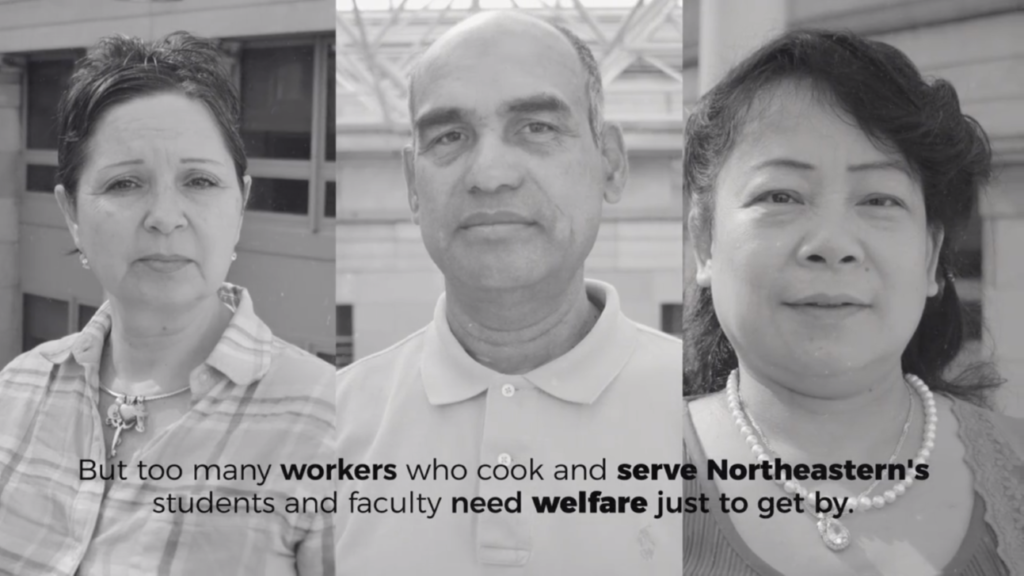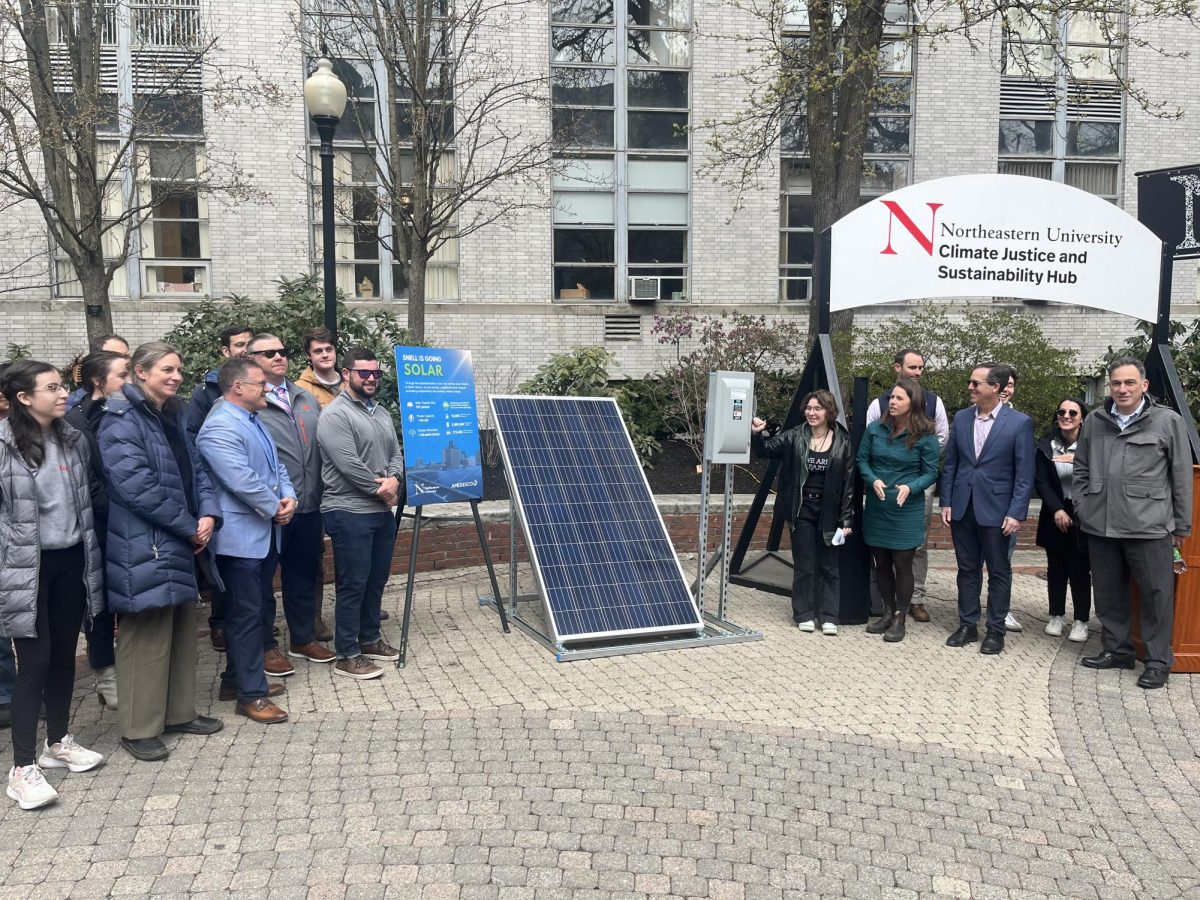By Patrick Burgard, news correspondent
The union representing Northeastern University dining hall workers bought advertising space on YouTube to promote a video criticizing the university for underpaying food service workers while accepting large tax breaks from the City of Boston.
The union, UNITE HERE Local 26, published a video to Facebook Aug. 21 alleging that Northeastern — which is exempt from city property taxes and all federal and state taxes because of its nonprofit status — is taking more from the community than it gives in return. The video was produced in a union effort to draw attention to the issues facing dining workers at Northeastern, who are preparing to strike for better pay and benefits, according to union spokesperson Tiffany Ten Eyck.
“With property tax breaks alone, the City of Boston helped Northeastern University reach a $70 million surplus last year,” the union stated in its video. “But too many workers who serve Northeastern’s students and faculty need welfare just to get by.”
According to the City of Boston, Northeastern paid $1.3 million to the city this year through Boston’s Payment in Lieu of Taxes program, which is a voluntary payment program meant to offset the tax revenue lost from nonprofits with properties exceeding $15 million in value. If Northeastern did not have nonprofit status, it would have owed the city $44.19 million in property taxes last year. Boston requested Northeastern pay nearly $11 million.
Ten Eyck said it is very common for Northeastern dining services workers to receive welfare, and called upon the administration to use its resources to improve their quality of life.
“It’s very common for dining hall workers at Northeastern to qualify for low income housing,” Ten Eyk said. “The majority of them who are parents qualify for MassHealth for their children. Many of them qualify for childcare subsidies and some number of them qualify for food stamps. They’re on campus every day feeding and greeting students, faculty and staff, and they don’t want to be forgotten.”
Janae Shelton, a three-year veteran of Northeastern’s dining staff who works in the International Village dining hall, said she sees an imbalance between the amount of money Northeastern saves through its nonprofit status and the wages and benefits of her and her coworkers. Shelton said she wonders why the university seems unwilling to spend money to improve the workers’ quality of life.
“I don’t think they care at all. Honestly, I really don’t,” Shelton said. “Some of my coworkers have children and I see them struggle. With the amount of money that Northeastern has, they need to show appreciation for us.”
Ten Eyck said the average Northeastern dining worker’s salary is $21,460 — more than $13,800 below Boston’s median income as listed in a 2016 report from the Mayor’s Office of Workforce Development.
Northeastern spokesperson Matthew McDonald said dining hall workers are a part of the school, but not employees of the school. Chartwells, a dining services company for schools, is contracted by the school and the direct employer of all dining hall workers.
“Dining services workers at the university, while valued members of our community, are not employed by Northeastern; they are employed by our food service vendor, Chartwells,” McDonald said in a Sept. 21 email to The News. “We look forward to the union and the employer reaching an amicable agreement.”
Chartwells did not respond to multiple requests for comment on this story.
Ten Eyck criticized the university for its apparent unwillingness to take responsibility for issues that occur on campus and said the administration should take an active role in the negotiation process.
“There’s no question that the Northeastern administration has the power to make decisions about every aspect and every facet of their campus operations,” Ten Eyck said. “Northeastern runs an operation as a university that includes food service, so regardless of whose name is on the paycheck, they are a Northeastern campus facility, and we really hope that Northeastern will just speak to its campus workers and do what is right here in this situation.”
Last week, The News reported that Northeastern dining workers will vote Oct. 4 to decide if they will strike to demand a pay raise and better benefits for full-time workers.
Ten Eyck said more than 300 dining workers have already pre-pledged to vote in favor of striking, and the ballot is expected to be a victory for those in favor.
“We have a very, very strong indication of an overwhelming ‘yes’ vote at this point,” Ten Eyck said.
The would-be Northeastern strike comes almost a full year after Harvard University’s dining workers successfully went on strike for the exact same demands: $35,000 per year and improved health care benefits for full-time employees. Ten Eyck said the success achieved by Harvard dining workers, who are also represented by Local 26, is a major inspiration for the Northeastern dining workers’ cause.
Shelton, who is also a college student struggling to pay for her textbooks and bills, said she was among those who pre-pledged in favor of striking. She said she does not see another way to improve the treatment of dining workers.
“Action needs to happen,” she said. “No matter how far we need to go, we have to fight to get what we want. I’ll be going on strike whenever the time is right.














